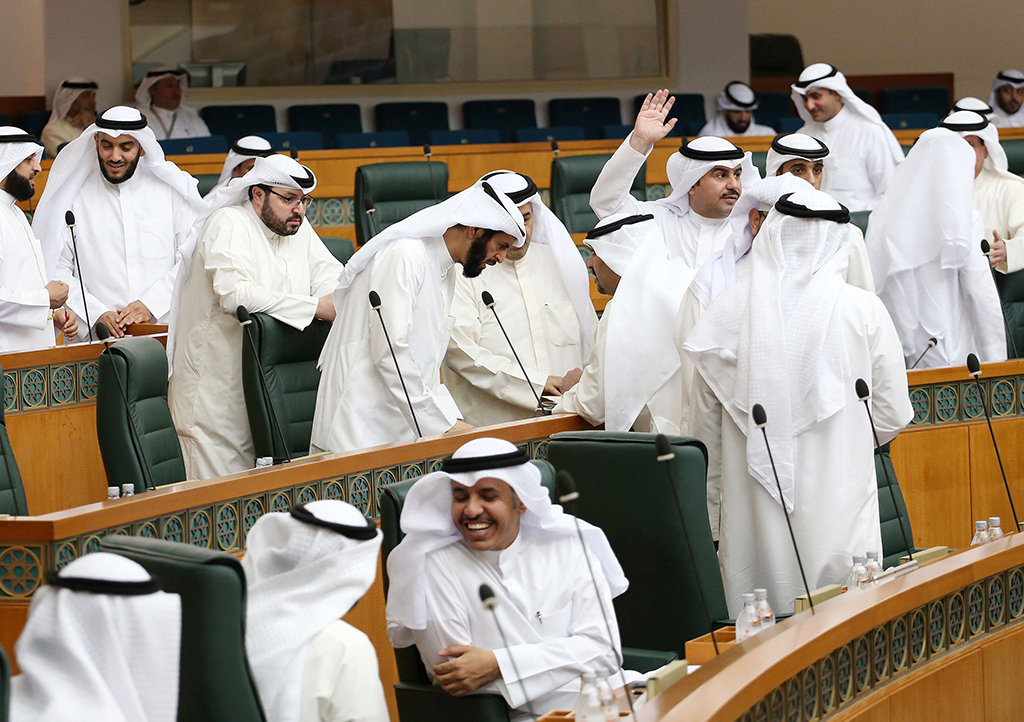By B Izzak & KUNA
KUWAIT: The National Assembly on Tuesday passed the state budget for the 2022/2023 fiscal year, which forecasts a deficit for the eighth year in a row, after the government accepted demands by MPs to increase welfare spending. The initial draft budget projected a KD 333 million surplus for the first time since the 2015/2016 fiscal year, but the government accepted demands by newly-elected lawmakers to add more than KD 450 million to expenditures to account for some populist policies.
The new budget projects revenues at KD 23.399 billion, while spending is estimated at KD 23.523 billion, leaving a deficit of KD 124 million, according to budget figures approved by the Assembly. Fifty-three members voted for the budget while four MPs voted against, with one abstention. MPs refused to pass the budget last week, demanding that the government add some KD 300 million to pay for government staff willing to cash their annual leave, and around KD 157 million to pay frontline workers during the coronavirus pandemic. MPs also voted to pass the budgets of dozens of independent government agencies.
MP Abdulwahab Al-Essa said last week the Assembly was debating a budget with a surplus of KD 333 million, but “today we are debating a budget projecting a deficit of over KD 120 million”. “In just one week, we turned a surplus budget into deficit,” he said. Finance Minister Abdulwahab Al-Rushaid however said the budget revenues are estimated at an oil price of just $80 a barrel, but the actual price of oil is much higher. “Accordingly, we expect to post a surplus which will be used to boost state reserves,” the minister said.
Rushaid however warned that the biggest problem faced by the country’s finances is rising inflation, which hit 4.2 percent, the highest in the Gulf, pointing out that it is a serious problem. He added per capita income is KD 1,534 (around $5,000), of which 33 percent is spent on housing. After passing the budget, MPs called on the government to increase wages of government staff in proportion with the rate of inflation.
Lawmakers also voted on recommendations calling on the government to present its plan to diversify sources of income of non-oil revenues. MPs also called on the government to prepare the draft budget at least two months before the start of the fiscal year on April 1. MP Hasan Jowhar said approving the budget shows that “we have started a new era and our hands are extended for cooperation”.
MPs also approved a recommendation asking the government to inform the Assembly on developments regarding cases of public fund thefts. MPs approved a request by Minister of State for National Assembly Affairs and Minister of State for Housing Affairs and Urban Development Ammar Al-Ajmi on the rapid examination of bills amending the penal code and conflicts of interest - due to their relationship with boosting integrity, transparency and combating corruption - to be listed to the tasks of the parliamentary legal affairs committee.
MPs also approved a request filed by Jowhar that the committee for protecting public funds be tasked with examining a multitude of major graft cases, in addition to a number of other cases related to corruption and money laundering, along with referring the documents forwarded to the Assembly in the past to the relevant commission. The Assembly meets again on Wednesday.











